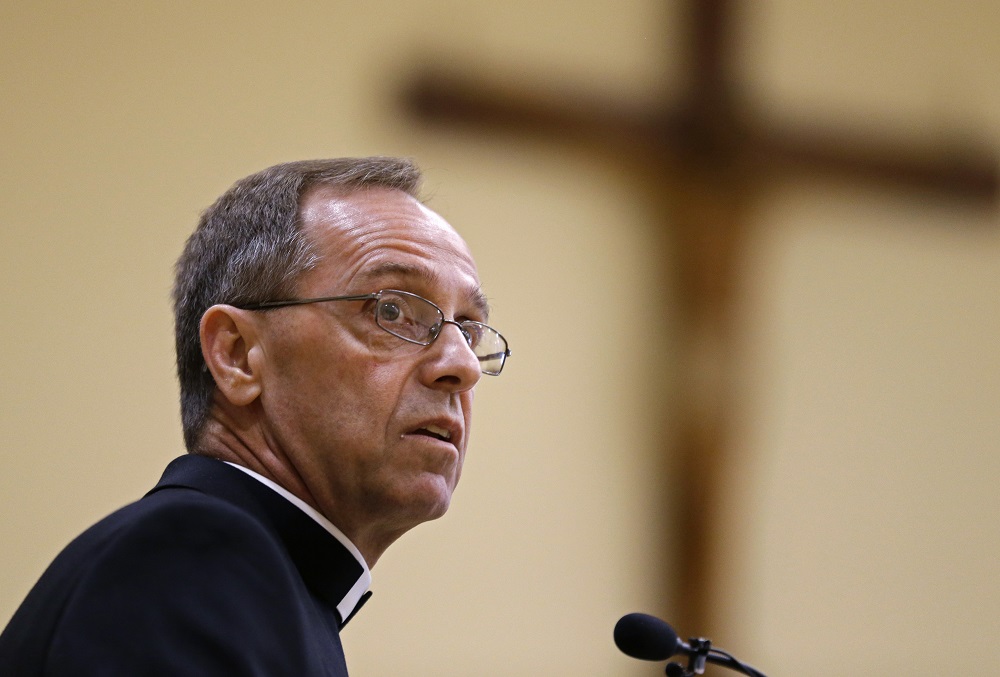
Bishop Charles Thompson speaks after he is introduced as the new archbishop of Indianapolis on June 13, 2017, in Indianapolis. The Indiana Supreme Court ruled Wednesday, Aug. 31 that religious freedom rights protect the Roman Catholic Archdiocese of Indianapolis from being sued by a teacher who was fired from his job at a Catholic high school for being in a same-sex marriage. (Michael Conroy/AP)
The Indiana Supreme Court ruled Aug. 31 that religious freedom rights protect the Indianapolis Archdiocese from being sued by a teacher who was fired from his job at a Catholic high school for being in a same-sex marriage.
Joshua Payne-Elliott argued in his lawsuit that archdiocese leaders wrongfully forced his firing in 2019 from his job of 13 years as a world language and social studies teacher at Cathedral High School in Indianapolis by mandating that all Catholic schools under its purview enforce a morality clause barring employees from entering into same-sex marriages.
The state Supreme Court decision said religious institutions had the First Amendment right to decide matters of church governance for themselves.
"The archdiocese's decision whether a school maintains its Catholic identity is an internal matter that concerns both church policy and administration," the decision said.
Advertisement
Payne-Elliott married Layton Payne-Elliott, a teacher at Brebeuf Jesuit Preparatory School of Indianapolis, in 2017.
The archdiocese directed the schools to fire both men. Brebeuf did not comply with the directive, after which Archbishop Charles Thompson responded by attempting to strip Brebeuf of its status as a Catholic school. That action was suspended by Vatican officials after Brebeuf appealed.
Joshua Payne-Elliott's lawsuit claimed that the archdiocese illegally interfered with his contractual and employment relationship with Cathedral High School by causing the school to terminate him. He sued the archdiocese after reaching a settlement with Cathedral.
Attorneys for the archdiocese said the decision upheld the rights of religious institutions to determine their values.
"Courts can't decide what it means to be Catholic — only the church can do that," said Luke Goodrich, senior counsel at the Washington-based Becket Fund for Religious Liberty. "By keeping the judiciary out of religious identity, the Indiana Supreme Court just protected all religious institutions to be free from government interference in deciding their core religious values."
Payne-Elliott's attorney, Kathleen DeLaney, didn't immediately comment on the decision.






